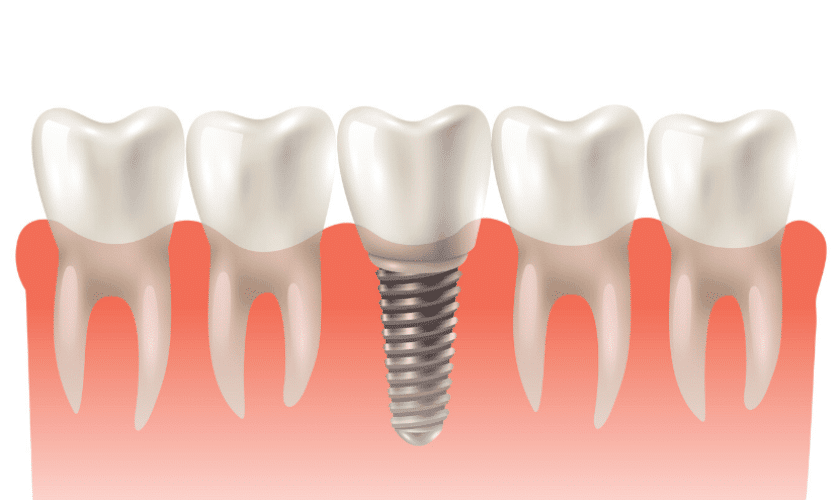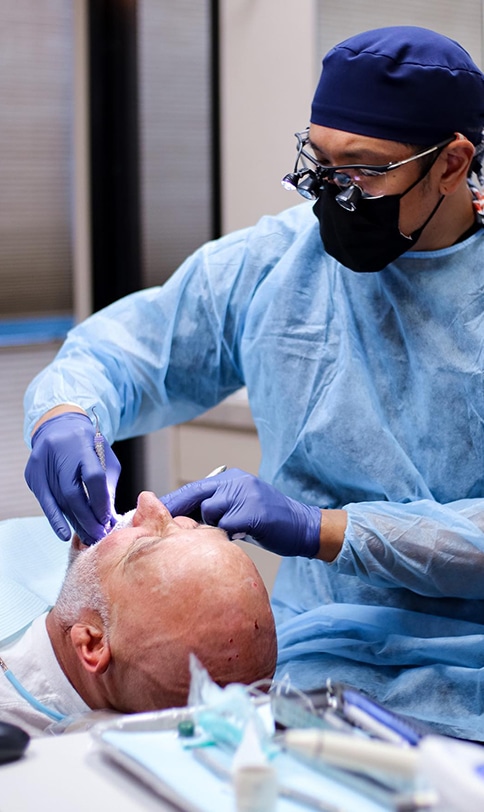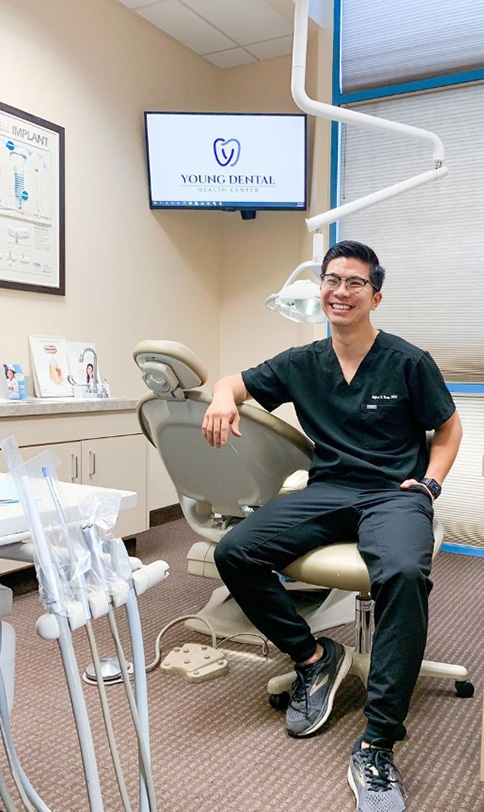E-mail Us
Sleep With Dentures: Should You Or Shouldn’t You?

When it comes to wearing dentures, one common question often arises: Should you keep them in while sleeping or give your gums a break overnight? Dentures are designed to replace missing teeth, restore functionality, and enhance confidence, but their use during sleep remains a hotly debated topic.
This guide explores the pros and cons of sleeping with dentures, what professionals recommend, and how to establish a denture care routine that prioritizes your oral health.
The Big Question: Why Sleep With Dentures?
At first glance, it might seem convenient to keep your dentures in overnight. After all, they’re comfortable and offer a natural look. But is it the best choice for your oral health? Let’s break it down.
Reasons People Sleep With Dentures
- Convenience: Removing and reinserting dentures daily can feel tedious.
- Confidence: Some people feel self-conscious about being seen without teeth, even by close family members.
- Habit: Long-term denture wearers may develop a routine of keeping them in.
- Comfort: For some, dentures provide a sense of normalcy and security, even while sleeping.
While these reasons are understandable, they don’t tell the whole story.
What Happens When You Sleep With Dentures?
Sleeping with dentures may seem harmless, but it can have significant effects on your oral and overall health. Here’s what’s at stake:
1. High Risk of Infections
Wearing dentures overnight creates a warm, moist environment perfect for bacteria and fungi to thrive. This can lead to:
- Denture Stomatitis: Inflammation of the tissue beneath the denture, often caused by fungal infections.
- Bad Breath: Accumulated bacteria can lead to persistent bad breath.
2. Gum Irritation
Leaving dentures in all night puts continuous pressure on your gums, which can lead to soreness, swelling, and long-term tissue damage.
3. Bone Resorption
The jawbone beneath your gums needs stimulation to maintain its density. Continuous wear of dentures can accelerate bone loss, affecting the fit and stability of your dentures over time.
4. Reduced Oral Hygiene
Dentures left in overnight aren’t cleaned regularly, allowing plaque and food particles to accumulate. This increases the risk of:
- Gum disease
- Mouth sores
- General oral discomfort
What Do Experts Recommend?
Dental professionals overwhelmingly agree: It’s best to remove your dentures at night. This allows your gums to rest and promotes better oral hygiene.
Benefits of Removing Dentures at Night
- Healthier Gums: Your gums get a break from constant pressure.
- Reduced Infection Risk: Cleaning dentures and letting them air out prevents bacterial and fungal growth.
- Improved Comfort: A clean, rested mouth is more comfortable and less prone to irritation.
- Prolonged Denture Longevity: Proper care extends the lifespan of your dentures.
Tips for Proper Denture Care
Whether you’re new to dentures or a seasoned wearer, adopting a consistent care routine is essential. Here’s how to keep your dentures and gums healthy:
1. Remove and Clean Nightly
- Brush your dentures gently with a soft toothbrush or denture brush.
- Use non-abrasive denture cleaner (avoid regular toothpaste, which can be too harsh).
- Rinse thoroughly to remove food particles and debris.
2. Soak Overnight
- Place dentures in a denture-soaking solution to keep them moist and disinfected.
- Never use hot water, which can warp the denture material.
3. Clean Your Gums and Mouth
- Brush your gums, tongue, and the roof of your mouth with a soft toothbrush.
- Rinse with an antibacterial mouthwash to eliminate residual bacteria.
4. Schedule Regular Dental Checkups
- Visit a dentist regularly to check the fit and condition of your dentures.
- Discuss any discomfort or changes in your oral health.
Special Situations: When Sleeping with Dentures May Be Necessary
While the general rule is to remove dentures at night, there are exceptions:
1. Immediate Dentures
After tooth extraction, immediate dentures may need to stay in place temporarily to protect the healing gums and promote clotting. Always follow the dentist’s instructions in such cases.
2. Sleep Apnea Solutions
Some denture wearers use specially designed devices to manage sleep apnea. Consult our dentist if this applies to you.
3. Social or Emotional Comfort
Occasionally, overnight wear might be acceptable for those who feel significant discomfort or embarrassment. However, this should be minimized.
The answer is clear: Removing your dentures at night is the best choice for your oral health. By giving your gums a well-deserved rest, maintaining proper hygiene, and following a nightly care routine, you’ll reduce the risk of infections, gum irritation, and bone loss. Additionally, you’ll extend the lifespan of your dentures and enjoy greater overall comfort.
Remember, your smile deserves the best care. Banishing the habit of sleeping with dentures may seem challenging at first, but the benefits far outweigh the temporary inconvenience. Take charge of your oral health and let your gums breathe—they’ll thank you for it!







